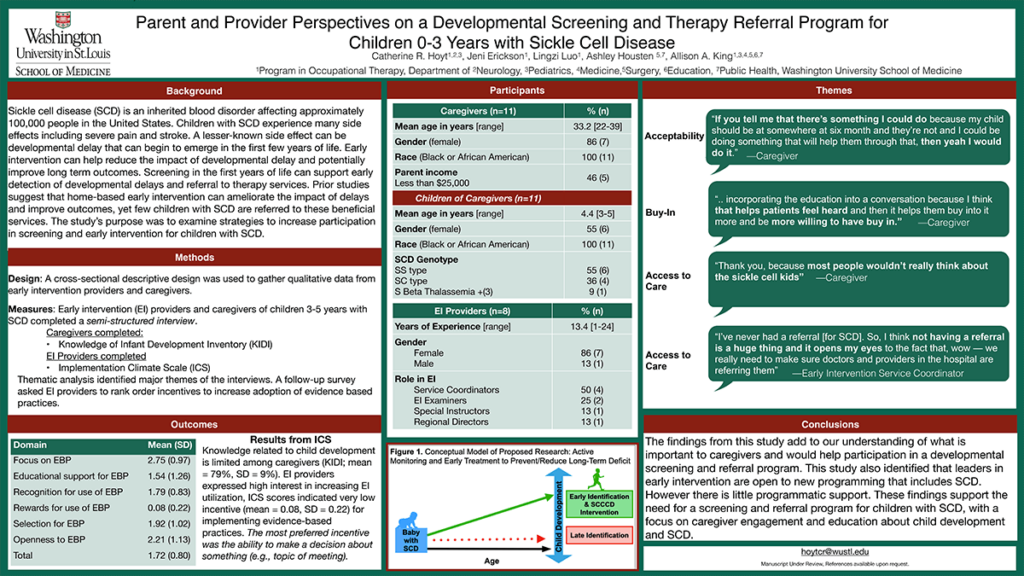Introduction: Sickle cell disease (SCD) is an inherited blood disorder affecting approximately 100,000 people in the United States. Children with SCD experience severe pain and stroke. A lesser-known side effect can be developmental deficits. Early intervention (EI) can help reduce the impact of deficits. Screening for deficits in the first years of life can support early detection and referral to therapy services. Prior studies suggest that home-based EI can improve outcomes, yet few with SCD are referred to or use these beneficial services. The purpose of this study was to examine strategies to increase participation in screening and EI for children with SCD.
Methods: EI providers and caregivers of children 3-5 years with SCD completed a semi-structured interview and survey. Caregivers completed the Knowledge of Infant Development Inventory (KIDI); EI Providers completed the Implementation Climate Scale (ICS). Thematic analysis identified major themes of the interviews. A follow-up survey asked EI providers to rank order incentives to increase the adoption of EI for SCD.
Results: Eleven caregivers and eight EI providers participated. Three main themes were identified: 1) high acceptability of a screening and referral program, 2) access to services, and 3) need for caregiver buy-in. All participants described a need to support caregiver buy-in and SCD specific education. Knowledge related to child development is limited among caregivers (KIDI; mean = 79%, SD = 9%). EI providers expressed high interest in increasing EI use, yet ICS scores indicated very low incentive (mean = 0.08, SD = 0.22) for implementing evidence-based practices. The most preferred incentive was the ability to make a decision about something (e.g., topic of meeting).
Impact: The findings from this study add to our understanding of what is important to caregivers and would help participation in EI services. This study also identified that leaders in EI are open to new programming that includes SCD, however, there is little programmatic support. These findings indicate that greater support is needed for children with SCD, with a focus on caregiver engagement and child development.
Organization – Washington University in St. Louis
Hoyt CR, Erickson JE, Luo L, Housten AH, King AH
